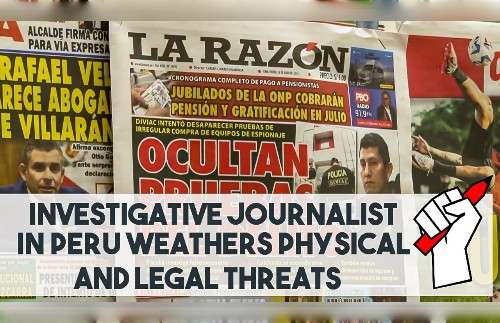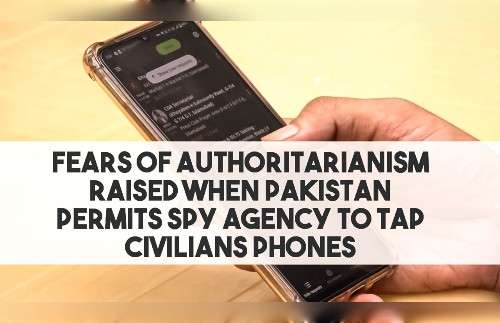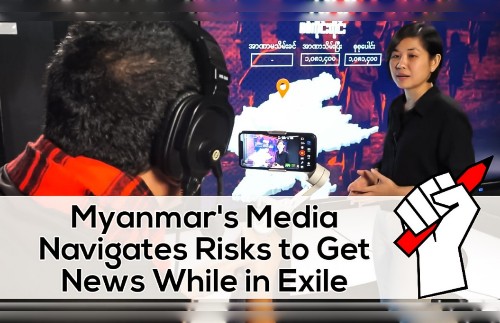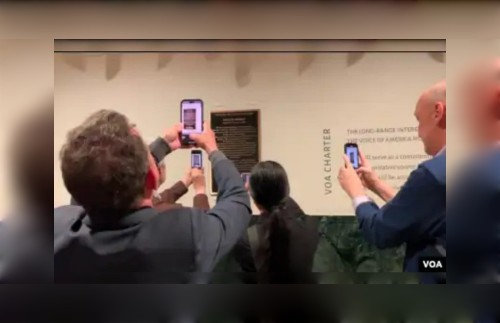
Journalists covering mass street protests against Myanmar’s military junta are increasingly reporting threats, arrests and harassment from authorities tightening a crackdown on opponents of the Feb. 1 coup in what a local press watchdog called an attempted “news blackout.”
In a spate of incidents this week witnessed by or described to RFA reporters, Myanmar journalists reported being kicked and shot at with slingshots while also facing threats or attempts arrest them, even when identifying themselves as media.
On Wednesday foreign correspondents’ clubs (FCC) in Thailand, Japan, Indonesia, Taiwan and the Philippines released a joint statement saying they are “deeply concerned by harassment and intimidation of the media in Myanmar following the Feb. 1 coup.”
“At least six journalists had been detained as of Feb. 20, 2021, while countless more have been subject to threats and intimidation by security forces and those associated with the military regime in their reporting,” it said.
Journalists from RFA and other outlets experienced harassment while covering mass protests Wednesday.
Journalists from RFA’s Myanmar Service and local outlet 7-Day News were recording and taking photos of a crowd of about 200 protesters that had gathered in front of State High School No. 1 in the capital Naypyidaw, when were ordered by their commander to arrest the reporters and confiscate their cameras.
“About nine or 10 police trucks came on the scene with their lights and horns blaring. We were by the side of the road taking picture when we heard the commanding officer say, ‘Get those reporters! Get them!’” a reporter who requested anonymity for safety reasons told RFA’s Myanmar Service.
“We started running into the nearby streets and alleys. Three of us went into nearby houses to hide. Some of those who climbed fences tore their clothes. We don’t know whether anyone was arrested or not,” said the reporter.
Wednesday’s statement from the FCCs condemned the military government for trying to control the narrative in this manner.
“The military regime has also proposed a law that would require local internet service providers to disclose user information to authorities, and to remove content deemed to ‘cause hatred, destroy unity and tranquility’ or be ‘untruthful news or rumors.’ Anyone who posts ‘misinformation or disinformation’ could face up to three years in prison if they are deemed to have done so ‘with the intent of causing public panic, loss of trust or social division,’” the statement said.
“We urge the State Administration Council to allow journalists to do their jobs without fear of reprisal, and support the call by the Committee to Protect Journalists to the junta authorities to cease and desist harassing, detaining and threatening the media,” the FCCs said.
Myint Kyaw, formerly the joint secretary of the Myanmar Press Council, told RFA that threatening or detaining journalists for covering a peaceful protest amounted to an attempt to impose “effectively a news blackout.”
This should not happen under any circumstances. It is unacceptable and we condemn this,” he said.
Reported by RFA’s Myanmar Service. Translated by Ye Kaung Myint Maung and Khin Maung Nyane. Written in English by Eugene Whong.
Copyright © 1998-2020, RFA. Used with the permission of Radio Free Asia, 2025 M St. NW, Suite 300, Washington DC 20036. https://www.rfa.org
















